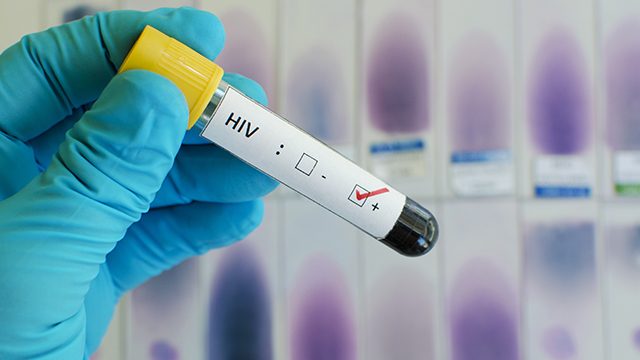SUMMARY
This is AI generated summarization, which may have errors. For context, always refer to the full article.

MANILA, Philippines – Overseas Filipino workers (OFW) now comprise 10% of the total number of Filipinos living with the Human Immunodeficiency Virus (HIV), ACTS-OFW party list said on Saturday, May 25.
ACTS-OFW Representative Aniceto Bertiz III said in a statement on Saturday that 91 OFWs tested positive for HIV in March, which brought to 6,524 the cumulative number of OFWs found living with HIV since the government began passive surveillance of the virus in 1984.”
The March figure for OFWs with HIV is 14% higher than the 80 recorded in the same month in 2018, he said.
Bertiz said that were 65,463 confirmed cases in the National HIV and AIDS Registry as of March. (IN NUMBERS: Global HIV/AIDS cases still on the rise)
The lawmaker also said that with the latest figures, the government should deliver “highly improved support” to OFWs living with HIV, as mandated by the new law strengthening HIV/AIDS health services.
The Philippine HIV and AIDS Policy Act of 2018 requires all overseas-bound Filipinos, workers, or government staff, to undergo seminar on the causes, prevention, and impact of HIV and AIDS.
“Under the law, the economic, social and medical support is to be extended to all OFWs, regardless of employment status and stage in the migration process. The preventive education seminar is to be provided for free and at no cost to OFWs or to the staff concerned,” Bertiz said.
Based on the National HIV/AIDS Registry, OFWs who are part of the record were working overseas for the past 5 years, either on land or at sea, when they tested positive.
A third came from Metro Manila at 2,110 cases, followed by Calabarzon at 1,139; and Central Luzon at 761 cases.
The data showed that at 86% OFWs in the registry are male with a median age of 32. (WATCH: What can you do to encourage HIV testing?)
While the global trend in HIV incidents is declining, the Philippines is one of only 9 countries in the world that recorded a more than 25% increase in HIV incidence.
The Department of Health recorded a total of 11,103 cases in 2017, which is higher than the 9,264 cases reported in 2016; 7,831 in 2015; 6,011 in 2014; 4,814 in 2013; and 3,338 in 2012.
An expert had warned that unless steps are taken, the number of Filipinos living with HIV/AIDS may exceed a quarter of a million by 2030.
HIV causes AIDS, which kills the immune system cells that help the body fight infections and diseases, therefore exposing infected people to pneumonia, tuberculosis, and other opportunistic diseases.
Without a known cure, antiretroviral drugs are used to suppress the virus. ARV drugs are oral combinations of two or more drugs to stop the replication and reduce the amount of HIV in the body. – Rappler.com
Add a comment
How does this make you feel?
There are no comments yet. Add your comment to start the conversation.